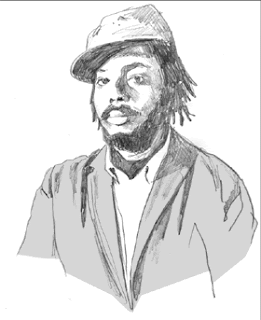
Ghost Town, which possesses perhaps the laziest, most self-evident title of a ghost-themed film since Bill Cosby’s 1990 cinematic tour de force Ghost Dad, is Ricky Gervais’s newest attempt to sell himself to American audiences. The film arrives on the heels of Gervais launching himself into the stratosphere of elite British comedians by creating and starring in the original BBC series The Office, which has even spawned own US counterpart, also helmed largely by Gervais, and subsequently doing the same in HBO’s superb Extras. Gervais excels in both TV roles, portraying a self-interested, cringe-worthily awkward Brit who is inadequate at his job and even more inadequate at interacting with those around him. In Ghost Town, Gervais plays Bertram Pincus, a curmudgeonly British dentist, a comically oxymoronic characterization that goes under-utilized in the film. He also happens to be decidedly self-interested and cringe-worthily awkward as well. Bertram has got a vague back-story about previous heartbreak and an equally vague story about why he relocated from
The film rapidly takes a turn toward clichéd territory when Frank, the foremost ghost spokesperson, played by Greg Kinnear, explains to Bertram, “the dead have unfinished business, which is why we’re still here,” as though anyone in the audience would be the slightest bit confused about this plotline without Frank spelling it out. As is standard fare in most ghost-themed movies (The Sixth Sense, Ghost, etc.), it is up to the one person who can communicate with the dead, in this case Bertram, to assist them in solving their “unfinished business.” Bertram reluctantly agrees to help Frank by sabotaging his ex-wife Gwen’s new relationship. As you might expect, Bertram falls for Gwen, played by Tea Leoni, and from there the movie becomes hampered by formulaic romantic-comedy shifts, complete with not-so-subtle string accompaniment in the background of each emotional scene to really drive home the hammy on-screen pathos. Leoni’s acting, which is, in a way, representative of the film as a whole, continually treads water, alternating between joyous laughter and blatantly fake crying.
Despite a supporting cast well-versed in comedy, featuring Saturday Night Live’s Kristen Wiig and The Daily Show’s Aasif Mandvi, in addition to veterans Gervais and Kinnear, Ghost Town never fully gets off the ground comedically. With the exception of some humorous early exchanges between Bertram and Wiig’s character, Gervais appears straightjacketed early and often by a script that simply doesn’t play to his strengths. Throughout the film he appears patently miscast as the protagonist in narrative that straddles the fence between broad comedy and half-baked love story. Herein lies the biggest problem with Ghost Town. Largely, it isn’t the acting. Rather, it’s the brand of poor writing that appeals to the lowest common denominator. This is the sort of film that Gervais would have mocked in Extras, a satirical series which often skewered the shallow façade of
While it may not too late for Ricky Gervais to make a name for himself in the





























